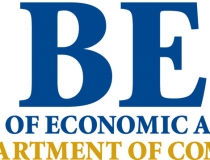The Three T’s: Tax, Transparency and Trade
So the G8 Summit came and went. For the British PM it was all about ‘the three T’s: Tax, Transparency and Trade.’ On both sides of the Atlantic, politicians have recently been pointing fingers at multinationals who use available legal mechanisms to minimize their tax liabilities. In the UK, American multinationals like Google, Amazon and Starbucks, have been particularly criticized. So the G8 saw some grand statements but unsurprisingly, there was very little actual detail.
The final communique included the phrase – “tax authorities should automatically share information to fight the scourge of tax evasion”. There is no need to point out that “should” is very different from “will”. I still maintain that global sharing of information is simply not plausible although limited information exchanges based on bilateral agreements may continue to grow. To me, Switzerland’s recent Parliamentary decision is an interesting case study.
The WSJ reported that Switzerland’s lower house of Parliament recently voted 123-63 against a measure which would have enabled many of the Alpine nation’s banks to sidestep the Swiss banking secrecy laws and start handing information to the U.S. Department of Justice. This is despite the smaller, upper house of Switzerland’s Parliament voting 26-18 in favor of the proposed plan.
In May, the Swiss cabinet had unveiled the plan for a U.S. resolution and indicated that Parliament should act swiftly to approve it due to the dwindling patience of American authorities. The WSJ explains that the rejection of the proposed plan for a collective resolution closes a window for a broader group of Swiss banks hoping to settle any outstanding issues they might have with the U.S. That creates a lack of clarity for many of Switzerland’s roughly 300 banks, according to Peter V. Kunz, a professor of business law at the University of Bern.
The Swiss Bankers Association said that the country “must not take the risk of a further indictment of a bank lightly.” The association is of course referring to the one Swiss bank that was indicted by the US DOJ and has since ceased trading. So I guess the Swiss cabinet is switching to its plan B right about now because the US will not let this one go. Roughly a dozen Swiss banks have already been cooperating with U.S. authorities as part of their tax probe, including Credit Suisse Group AG and Julius Baer Group AG. Credit Suisse has set aside 295 million Swiss francs ($320.7 million) to eventually settle U.S. tax matters.
This is quite a pivotal face off given that the long history of Switzerland and its culture of banking secrecy. Switzerland remains the world’s biggest center of offshore wealth, with $2.2 trillion held there as of last year, according to data from the Boston Consulting Group. At the end of the day, I believe that the Swiss will eventually cave in to US demands given the stakes.
As I continue to pay attention to what is happening around me, I remain convinced that behind so many international events is a not so subtle currency war. I have previously referenced the February 14th CNBC article entitled ‘Is the Dollar Dying? Why US Currency Is in Danger’. An article which pointed to the dollar losing value and it shrinking as a percentage of the world’s currency supply, raising concerns that the greenback is about to see its long run as the world’s reserve currency come to an end.
As a country that sees its relationship with the US as critical to its very survival, PM Cameron has done his part by fanning the flames of this issue. I suspect that it is highly unlikely that China, Russia and the US in particular, will ever agree to exchange financial data of its own ‘persons’. All the grilling of various CEOs of multinationals in the US and the UK with consequent media attention to corporate tax strategies is serving a very specific purpose. It is creating a very powerful narrative.
Exactly what is the subtext here? It is noteworthy that FATCA does not necessarily levy any additional taxes, rather it is a reporting requirement. I do not mean to imply that it is completely benign because the implicit cost of complying with these additional obligations sends a not to subtle message to American persons – ‘bring your money back to the US’. That is the underlying message.
The G20 finance ministers’ meeting in July is supposed to consider issues of tax avoidance by multinationals in particular. This meeting will include countries such as Brazil, China and India and is intended to make it harder for multinationals to move their profits from higher tax to lower tax jurisdictions. Good luck with that. This is really one man show and the US is the guy calling all the shots.
Recent Posts




